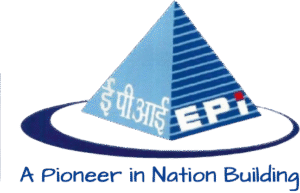NCRTC, The National Capital Region Transport Corporation (NCRTC) continues to shape the future of urban mobility with its modern transit systems. Among the several roles in this ambitious project, the position of Junior Engineer holds vital importance. This role is tailored for young professionals passionate about engineering, infrastructure, and innovation. If you’re aiming to be part of India’s transport revolution in 2025, understanding the complete process and requirements for the Junior Engineer post will be your first step toward a rewarding career.
Let’s break down everything you need to know in a practical and reader-friendly way.
Also read for Dynamic Infrastructure Industry.
Who Can Apply for Junior Engineer in NCRTC 2025?
The first and most crucial step is making sure you meet the eligibility standards. For aspiring Junior Engineers, the minimum educational requirement is typically a diploma in engineering. This can be in disciplines like Civil, Electrical, or Mechanical Engineering depending on the specific branch of the post.
Those holding a B.Tech or equivalent degree in the relevant stream are also welcomed, although it’s the diploma holders who are generally the primary focus for this role. There’s usually an age limit, often hovering around 28 to 30 years for general category candidates. However, age relaxations are often granted for candidates belonging to SC, ST, OBC, and other reserved categories in accordance with government norms.
Apart from educational and age-related qualifications, candidates should be physically fit as the job may involve fieldwork, inspection duties, or handling technical equipment under real-time operating conditions.
Understanding the Selection Journey
The process typically unfolds in multiple stages. First comes a computer-based test, where your technical skills, general awareness, and problem-solving abilities are assessed. This is the make-or-break phase for most aspirants and needs solid preparation.
If you crack the written test, you move on to the next stage, often a personal interview or a document verification phase. Some years, the interview is skipped and selection is done directly on merit based on the test scores. Candidates with prior work experience in rail or metro projects may get preference or added weightage in final consideration.
Following this, shortlisted individuals undergo a thorough medical examination. This check ensures candidates meet the health and fitness standards essential for the safety and operational efficiency of the transit system.
What the Exam Format Looks Like
When it comes to the test itself, it’s smart to know what lies ahead. Typically, the exam is computer-based and features multiple-choice questions. Time is limited, and the total marks are usually split between two key areas—technical knowledge and general aptitude.
In the technical section, questions are specifically crafted around your core subject—whether civil, electrical, or mechanical engineering. Expect to face questions covering your diploma syllabus including topics like structural analysis, power systems, thermodynamics, or construction materials.
The second part tests your logical reasoning, quantitative aptitude, general awareness, and English language skills. These are standard areas included in most competitive exams, and they’re designed to evaluate your ability to think clearly, solve basic problems, and communicate effectively.
There might be negative marking as well, so strategic answering is key. One careless guess can pull your score down, so it’s better to leave a question blank if you’re unsure, rather than risk a wrong answer.
Subjects and Topics to Focus On
If you’re wondering what to study, think of it in two parts. The first half revolves around your technical expertise. If you’re from civil engineering, you should sharpen your understanding of soil mechanics, highway engineering, construction practices, surveying, and RCC design. For those from electrical engineering, focus on control systems, electrical machines, circuits, transformers, and power electronics. Mechanical candidates should prioritize topics like machine design, fluid mechanics, production engineering, and strength of materials.
The non-technical portion, though often underestimated, can be a deciding factor. Brush up on current affairs—especially developments in the transport sector, national infrastructure, and new technologies. Also, dedicate time to mastering logical puzzles, number series, profit & loss, time-distance problems, and comprehension passages.
A structured and consistent study plan can help you master these subjects effectively.
Where to Find Accurate Information
To get the latest details, including application dates, exam schedules, and instructions, you should always refer to the NCRTC’s official digital platform. This is where they post important announcements and updates. Make it a habit to check regularly, especially during the application window and just before the test.
Avoid relying solely on social media or third-party websites, as they may not always offer accurate or up-to-date information.
Helpful Books and Study Resources
For technical subjects, standard textbooks from your diploma days are your best bet. Publishers like S. Chand, Made Easy, and Arihant offer well-structured guides tailored to engineering competitive exams. These usually include solved examples and model papers to test your knowledge.
To master aptitude and reasoning, R.S. Aggarwal’s books are often considered a classic choice. For current affairs and general knowledge, weekly magazines and online platforms like PIB and newspapers like The Hindu or Indian Express can keep you updated.
Solving previous year papers, even from similar roles in metro corporations or government engineering posts, can be a great way to practice and gain confidence.
Conclusion
Becoming a Junior Engineer in NCRTC is more than just securing a position—it’s stepping into a role where your skills directly contribute to building the future of transportation in India. With the right mix of technical knowledge, strategic preparation, and a focused mindset, this opportunity can lead to a fulfilling and impactful career. As cities grow and mobility needs evolve, professionals like you will play a key part in shaping smarter, faster, and safer public transport systems.




